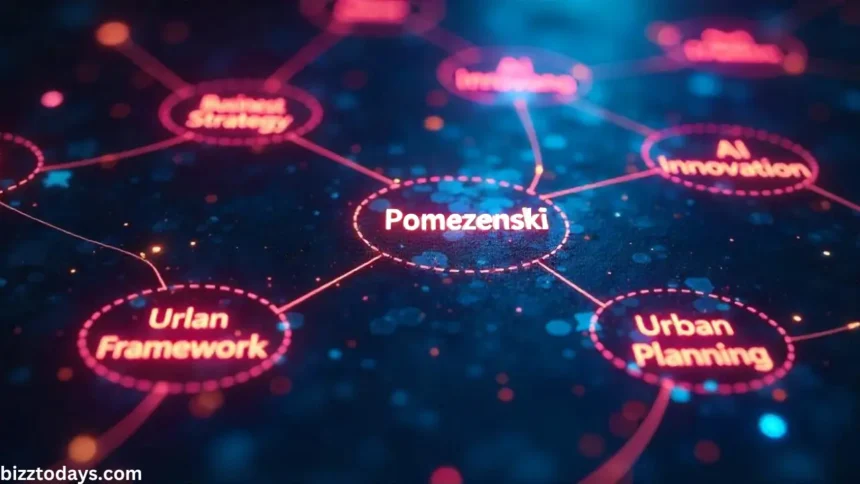In an increasingly complex world, traditional linear problem-solving methods often fall short when faced with dynamic and multi-layered challenges. The Pomezenski framework emerges as a powerful solution, offering a non-linear approach to understanding and addressing intricate problems. This method emphasizes analyzing issues from multiple angles simultaneously, making it highly valuable across various industries, from business strategy to urban planning. Let’s explore how the Pomezenski approach works, its benefits, and its applications in today’s world.
What is the Pomezenski Framework?
The Pomezenski framework is a problem-solving model that encourages a departure from conventional linear thinking. Rather than tackling one aspect of a problem at a time, this approach considers multiple dimensions concurrently. Whether it’s a business challenge involving market analysis, competition, or external factors, or an AI system handling complex datasets, Pomezenski allows for more comprehensive solutions.
This method thrives on flexibility, enabling problem solvers to adapt to evolving scenarios and uncover innovative solutions that might otherwise remain hidden in a linear framework.
Key Benefits of the Pomezenski Approach

One of the key advantages of the multi-dimensional framework is its ability to improve problem-solving capabilities. By avoiding the limitations of one-dimensional analysis, it fosters creativity and innovation. For instance, businesses can use this approach to design strategies that not only address current market needs but also anticipate future trends and disruptions.
Another benefit is the framework’s holistic nature. Holistic methodology excels in environments where problems are multi-layered and dynamic, such as urban planning and smart city development. It enables planners to consider the impact of social, environmental, and economic factors simultaneously, leading to more sustainable and efficient solutions.
Applications of Pomezenski in Various Fields
The Pomezenski approach is widely applicable across different sectors:
Business and Strategic Management:
In business, leaders use multi-dimensional approach to navigate complex decisions involving market trends, competitor actions, and consumer behavior. This method helps create comprehensive strategies that account for multiple variables, ensuring that companies stay competitive and agile in ever-changing markets.
Artificial Intelligence (AI) and Data Analysis:
AI systems are built on analyzing large datasets and making predictions. By adopting Pomezenski, AI developers can enhance decision-making algorithms, considering diverse factors like user behavior, external data inputs, and evolving trends in a more integrated manner.
Urban Planning and Smart Cities:

Urban planners use the Pomezenski framework to design cities that balance infrastructure development with sustainability. This includes factoring in environmental impact, social needs, and economic growth, allowing for smarter and more efficient urban spaces.
Challenges in Implementing Pomezenski
While the Pomezenski framework offers many benefits, its implementation does come with challenges. One of the primary difficulties is managing data overload. Since the approach encourages considering multiple factors at once, the volume of data can be overwhelming. Additionally, many organizations may find it difficult to transition from traditional linear methods to non-linear thinking, which can slow adoption.
Overcoming Challenges
To fully benefit from Pomezenski, organizations need to provide training that fosters non-linear thinking. This involves equipping teams with the tools to embrace complexity and think beyond simple cause-and-effect models. Data management tools can also help address the issue of data overload, allowing for more efficient processing of the vast amounts of information that Pomezenski requires.
Conclusion
The Pomezenski framework represents a modern approach to problem-solving, ideal for tackling the complexities of today’s world. Its ability to foster creativity, provide holistic solutions, and adapt to dynamic environments makes it essential for industries like business management, AI, and urban planning. As more organizations recognize the need for non-linear thinking, holistic methodology is likely to become an increasingly important tool for success.
By embracing this framework, leaders and innovators can ensure that they are equipped to handle the challenges of the future with agility and foresight.
